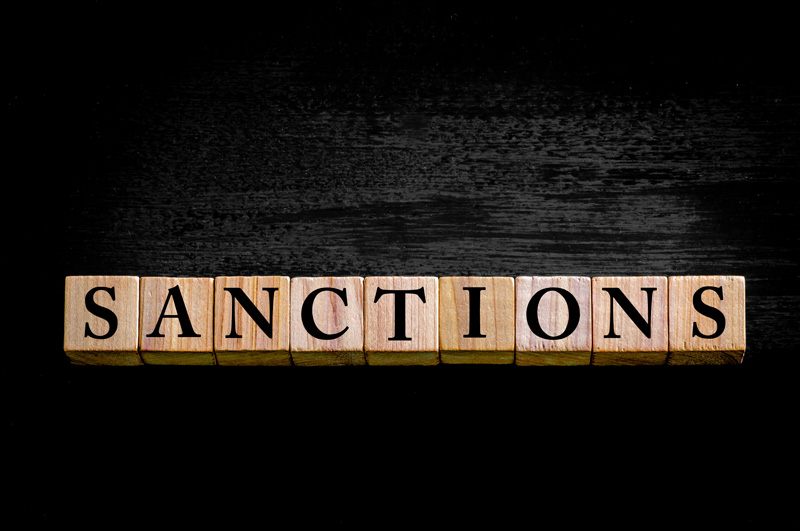EU sanctions

Related topics
Sanctionsdate: 19/12/2022
On 24 October 2022, Mairead McGuinness, Commissioner for Financial Services, Financial Stability and Capital Markets Union, chaired the first dedicated high-level meeting on sanctions implementation. The meeting came on the heels of the eighth in a series of increasingly restrictive sanctions packages that the EU – working closely with international partners – has delivered in the past few months.
Sanctions are working
Russia is engaged in a massive disinformation campaign to disguise the impact that sanctions are having on its economy. But figures show that the impact is significant. Nearly €17.75 billion of assets belonging to ‘listed persons and entities’ has been frozen in the EU as of 11 November 2022. Close to 1,000 international companies have left Russia. The country’s public finances went into the red this quarter, despite very high oil and gas prices. And the latest World Bank forecast from October estimates that Russian GDP will fall by 4.5 % this year and by 3.6 % next year. So EU restrictive measures against Russia are clearly effective in undermining Russia’s ability to sustain its economy while funding the war against Ukraine. Meanwhile, export and import bans mean that the Russian army cannot access chips to fix their military hardware because they have run out of semiconductors. And many Russian industries are reportedly struggling to repair equipment and keep up production due to the lack of technology and spare parts.
Effective implementation
However, while sanctions have proven to be effective, they can only have a full impact if they are properly implemented. National competent authorities in EU Member States are responsible for ensuring that sanctions are fully implemented and for investigating any possible circumvention. The European Commission has stressed the importance of working together to coordinate work at an EU level. To ensure effective, efficient and – importantly – uniform implementation, it is vital to prevent any potential loopholes or circumvention. The best way to do this is if Member States pool their resources, coordinate their efforts and learn from each other. At the high-level meeting on 24 October, Member States were able to share best practices, in particular on how to best organise monitoring and implementation of sanctions at the national level. How to effectively share relevant information was also discussed and it was agreed to set up mechanisms to exchange information more swiftly between Member States and the Commission.
Next steps
More specifically, the Commission set out a number of measures. It plans to
- Organise a structured, regular and comprehensive exchange of best practices among Member States on setting up effective internal structures, particularly improved internal coordination.
- Set up a new mechanism allowing Member States to contact each other and exchange information in real time on derogations and authorisations with a cross-border dimension, and companies or organisations owned and controlled by listed individuals.
- Establish a work stream on circumvention and organise an Experts’ Conference, and follow up bilaterally with all 27 national competent authorities.
The EU is coordinating its sanctions with other major international allies and partners such as the United States, the United Kingdom, South Korea, Switzerland and Japan.
